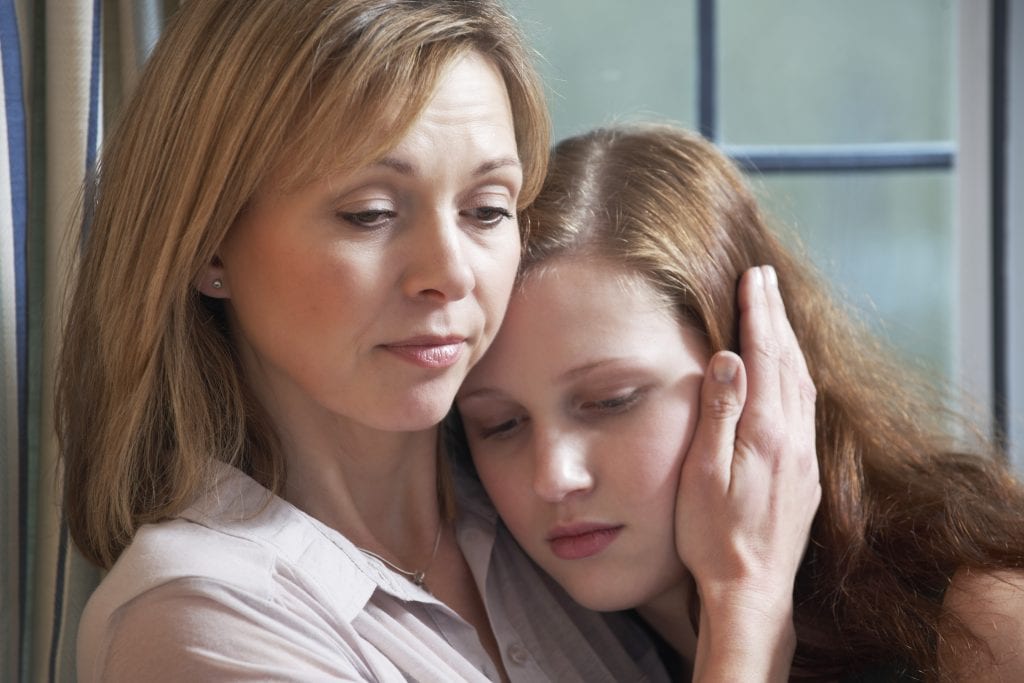As parents, there isn’t anything we wouldn’t do for our children, especially when it comes to helping them live their best lives. We want to see our children thriving in every aspect: physically, emotionally, mentally, in relationships and in their careers.
So when an eating disorder diagnosis comes into the picture, this can undoubtedly sabotage the hopes we might have for our kids – no matter their ages or the season of life they might be in. If you have an adult child who is struggling with an eating disorder, you might find yourself in a particularly precarious situation.
Understanding Eating Disorder Treatment Options
Studies have found the most effective form of treatment for an eating disorder is a multidisciplinary approach that involves psychosocial interventions [1]. Eating disorder treatment can occur at different levels, depending on individual circumstances and the severity of symptoms. Some of the common levels of care for eating disorder treatment include:
- Inpatient treatment
- Residential treatment
- Partial Hospitalization
- Intensive Outpatient
- Outpatient
In the case of eating disorder recovery, your child may transition through different levels of care and treatment, depending on their unique situation. In many instances, a person may require a higher level of care temporarily, especially if eating disorder symptoms intensify or if greater care is needed for intervention.
It can be difficult to transition to a higher level of care for multiple reasons. Many times, an individual struggling with an eating disorder may not realize that they need more help and support. Recommendations for a higher level of care may come from professionals, family members, and loved ones. If you are aware that your child might benefit from a higher level of care for eating disorder recovery, what might be the best way to approach this?
Supporting Your Adult Child Through Recovery
On one hand, your child is grown and independent, making their own decisions for their life and their health. On the other hand, you may feel the need to intervene or persuade them to do something that you feel would be beneficial for their well-being. Figuring out your role in their recovery journey can sometimes be confusing and overwhelming. You are not alone, and your support in their life can be instrumental in helping them overcome the struggles they may be facing.
Here are some practical ways you can support your adult child who may need a higher level of care for their eating disorder recovery:
- Keep communication open: It’s important for your child to know that you are available to talk and listen. Many times, you may find that your child simply needs a listening ear and wants to be heard without any judgment. If possible, create opportunities where you can have a conversation with your child without any distractions or interruptions. Ask open-ended questions and be willing to listen.
- Ask their permission to be involved: Rather than assuming, ask your child if you can participate in their care and recovery and to what degree they would like you to be involved. This can help give your child a sense of autonomy and individuality, while also building trust through an expression of respect. While your inclination may be to do anything in your power to help your child progress in their recovery, asking to help can be a respectful gesture that lets them know you care about them and their boundaries.
- Express your concerns in love: In uncertain situations, it is easier to react in fear, anger or frustration. Communicating to your child in this emotional state may cause you to express things that could push them away further from the help they need, rather than encourage them to get more support. If a conversation is feeling heated or tense, consider taking a break and resuming when you have had time to think through what you want to say. Above all else, remind your child that they are loved and that you have their best interest at heart. When they can hear your concerns being expressed from a place of love and respect, they will likely be more open and receptive to what you have to share and say.
- Connect them with resources/options: You may recognize that your child needs more support for their eating disorder recovery, but you may have a limited ability to get them to that support. In this case, you can still connect them with resources that might provide them with the care they need. Try to present these resources without a preconceived agenda of your own; rather, simply as a way to provide them with options they can take into consideration. There is a good chance they might feel overwhelmed with what they are going through. If you can, do a little research on some feasible options that might work for them, share and discuss openly.
- Get the support you need: Seeing your child struggle with an eating disorder and needing a higher level of care can trigger an array of emotions, from confusion to helplessness and everything in between. It’s important to understand that the eating disorder is not your fault, and there is absolutely hope for recovery. Helping yourself by getting the extra care you need can empower you to better support your own child through their recovery journey.
Above all else, remember that parents and family members play an instrumental piece in the recovery journey from an eating disorder. If you are interested in learning more about the eating disorder services offered through The Meadows Ranch and the integrative ways families are involved in treatment, please connect with us today. We would love to learn how we can join you and your family on the journey toward healing and long-lasting recovery.
References:
[1]: Costa, Marcelle Barrueco and Tamara Melnik. “Effectiveness of psychosocial interventions in eating disorders: an overview of Cochrane systematic reviews” Einstein (Sao Paulo, Brazil) vol. 14,2 (2016): 235-77.
